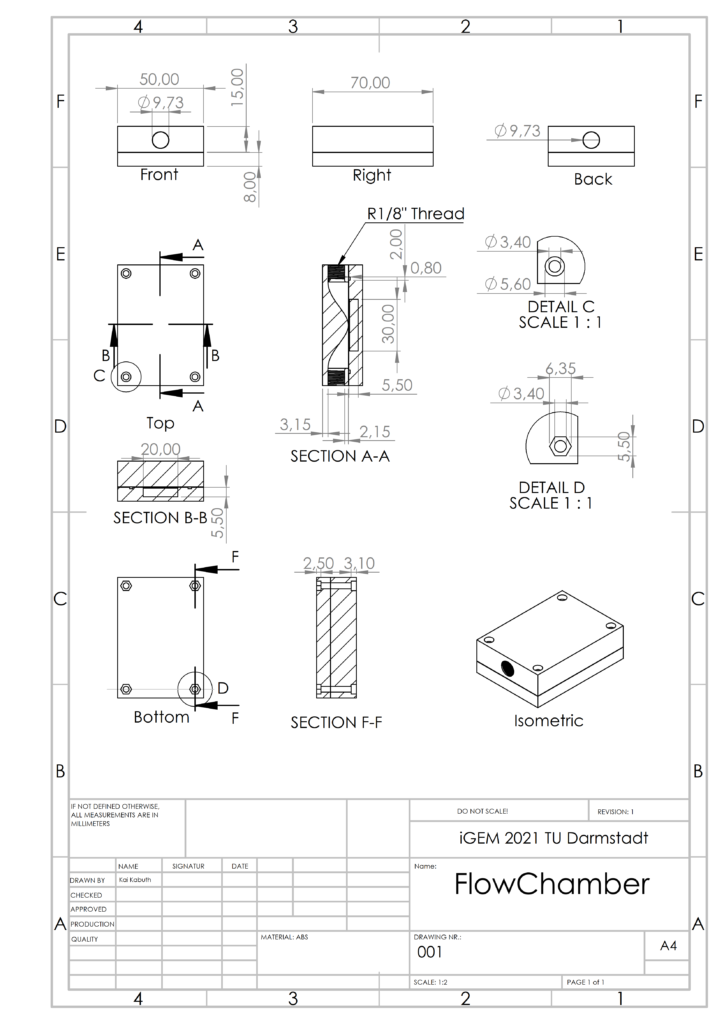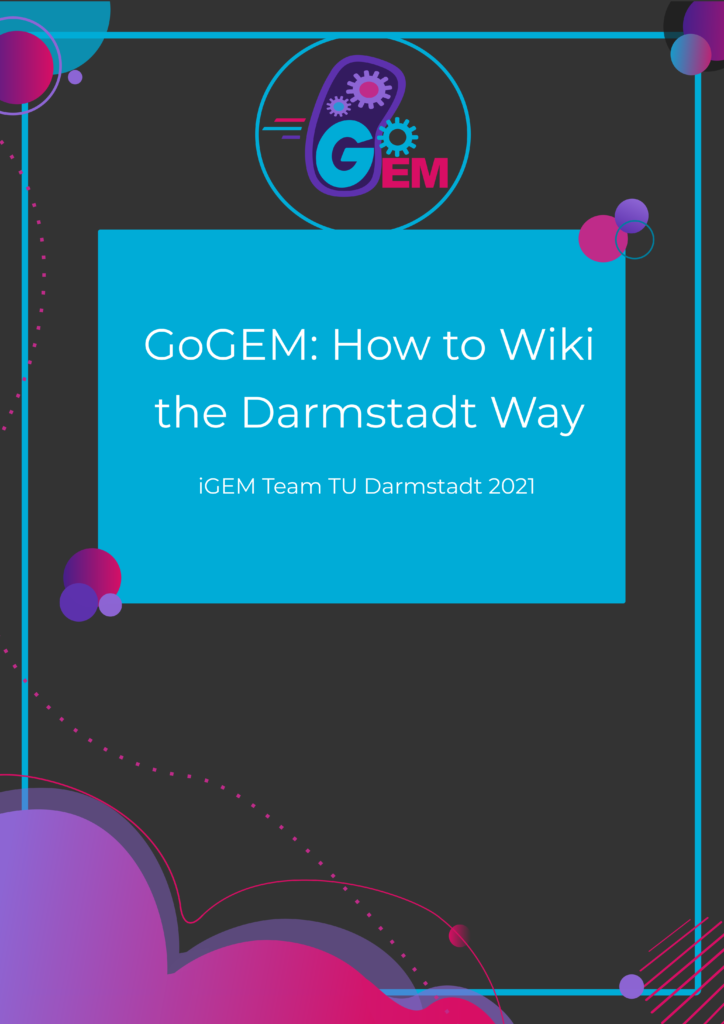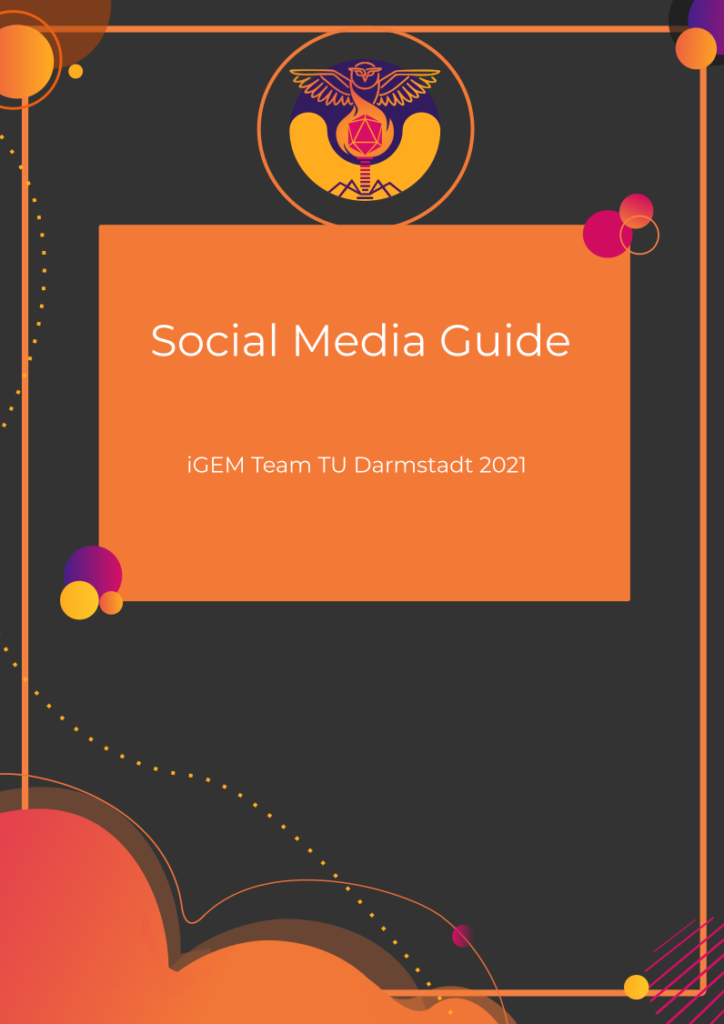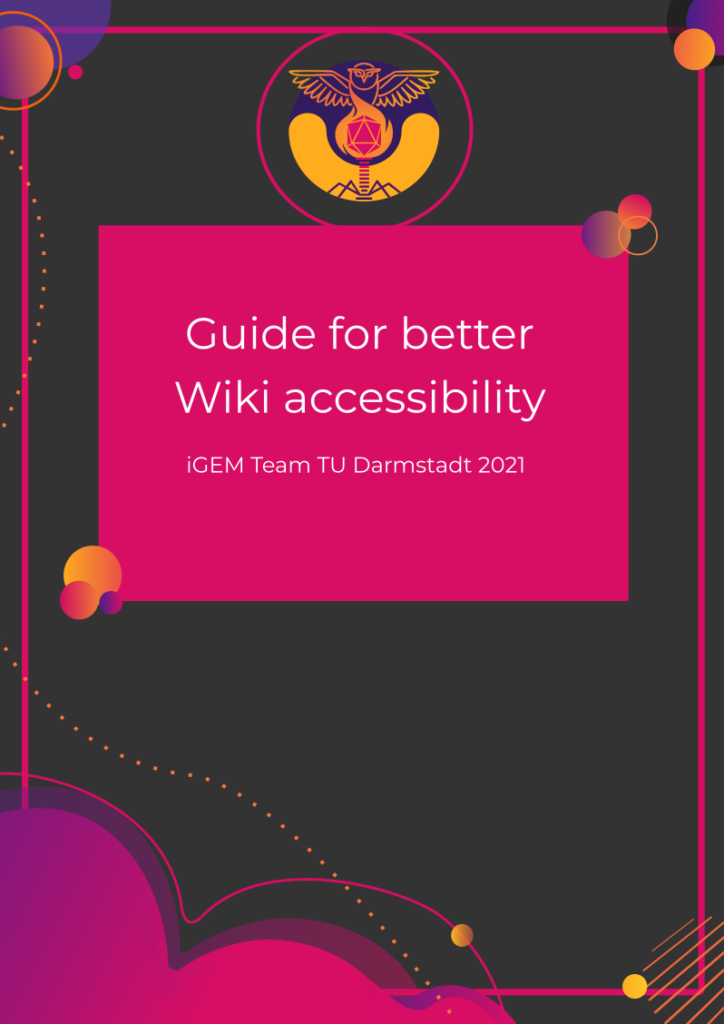FlowChamber
As we are working with biofilms, a major concern was not only the stability of our co-culture, but also the physical stability of our multi-functional biofilm. That is why we decided to reiterate on the FlowChamber design from the TU Darmstadt 2020 team.
After consulting with members of the 2020 TU Darmstadt iGEM Team, the numerous flaws in the old design became apparent. Only fixing the flaws wouldn’t be that effective, therefore we decided that a complete redesign incorporating the feedback from last year, would be more useful and promising.
We want our FlowChamber design to contribute to the success of future iGEM Teams. That is why we will provide access to our CAD files, as well as our technical drawings and our assay protocol.
If you want to know more about our design process, and the CFD simulations we used to refine it, as well as how we used it, check out the FlowChamber section on our Biofilm page!
Protocol and Drawings
CAD Files
GoGEM
What is the most important part of iGEM that has to be perfect on the end of the year. Correct! The Wiki! All the hardship and commitment of the team is shown here. But why does is have to be so hard and difficult to work on it? It is simply outdated.
We believe that this should be a thing of the past!
That is why we wrote GoGEM – a tool written in GO (external) that enables teams to design their wiki like many other websites. GoGEM provides an interface between iGEM and WordPress, the most used content management system in the world. It is able to automatically upload a complete WordPress page to iGEM, including the correct upload of media, JavaScript, CSS and other files. At the same time all links are replaced to ensure full functionality. Interested? Check out our wiki page to get a full overview on GoGEM!
But wait! There is more! We not only wrote the software that allows you to utilize WordPress as a platform, but also a guide that shows how you can create a wiki like this yourself. The most difficult thing about the wiki is to get it started, and we hope that we can help you with this process. The guide describes not only how to setup a local WordPress instance but also how you can go about starting the development of your own theme, which plugins could prove useful and how to utilize the capability’s of your browser for debugging (which you will need a lot of). Oh and of course how to upload your page to iGEM server with GoGEM!
We believe that this document provides an enlightening read, even if you do not plan on utilizing WordPress or GoGEM.
Part Contribution
28 Basic Parts and 1 Composite Part
We have created 28 Basic Parts and 1 Contribute Part which we contribute to the iGEM registry. We want to highlight that our Composite Part BBa_K3985026 worked as expected. The concerning results are documented on the registry page.
Improvement of Documented Sequences
Also, we came across two already existing parts which where documented with an incorrect sequence. Therefore, we created the new basic parts: lox66 fixed (BBa_K3985025) and Ribosomal Protein S2 (rpsB) B. subtilis fixed (BBa_K3985024). The incorrect parts are referenced on the new part entries. We hope this will help future iGEM Teams prevent confusion when working with lox66 or rpsB.
Social Media Guide
Social media is becoming increasingly relevant in terms of science communication. Our team elaborated a lot of useful methods and guidelines, that potentially help other iGEM Teams in providing information about their project on instagram, twitter etc.
The most important rule about social media is: “Get started!” So download this guide, set up your iGEM Team’s account and start posting. There will always be an audience, since every iGEM Team has an amazing story to tell. And with a little bit of work, this guide can help you to reach a broad audience. We promise this will be a lot of fun!
Guide for Better Wiki Accessibility
This year, our iGEM Team focused on making the iGEM wiki page as inclusive as possible. We are convinced, that access to scientific publications should be granted to everyone, without excluding anyone! In our opinion, iGEM is a great starting point for these efforts. There are a lot of simple rules when designing a website, that can include millions of people without even being an additional effort for you. Help us make science more inclusive by following the guidelines listed in our Wiki accessibility guide.
If you want to find out more about inclusivity in the context of an iGEM wiki, check out our page on inclusion.






